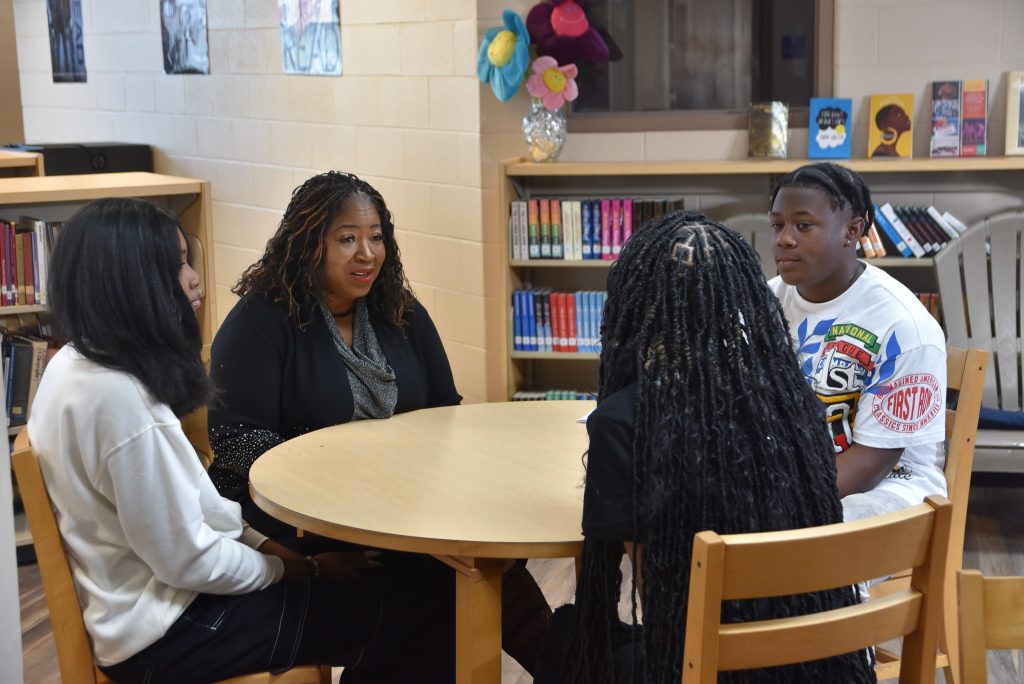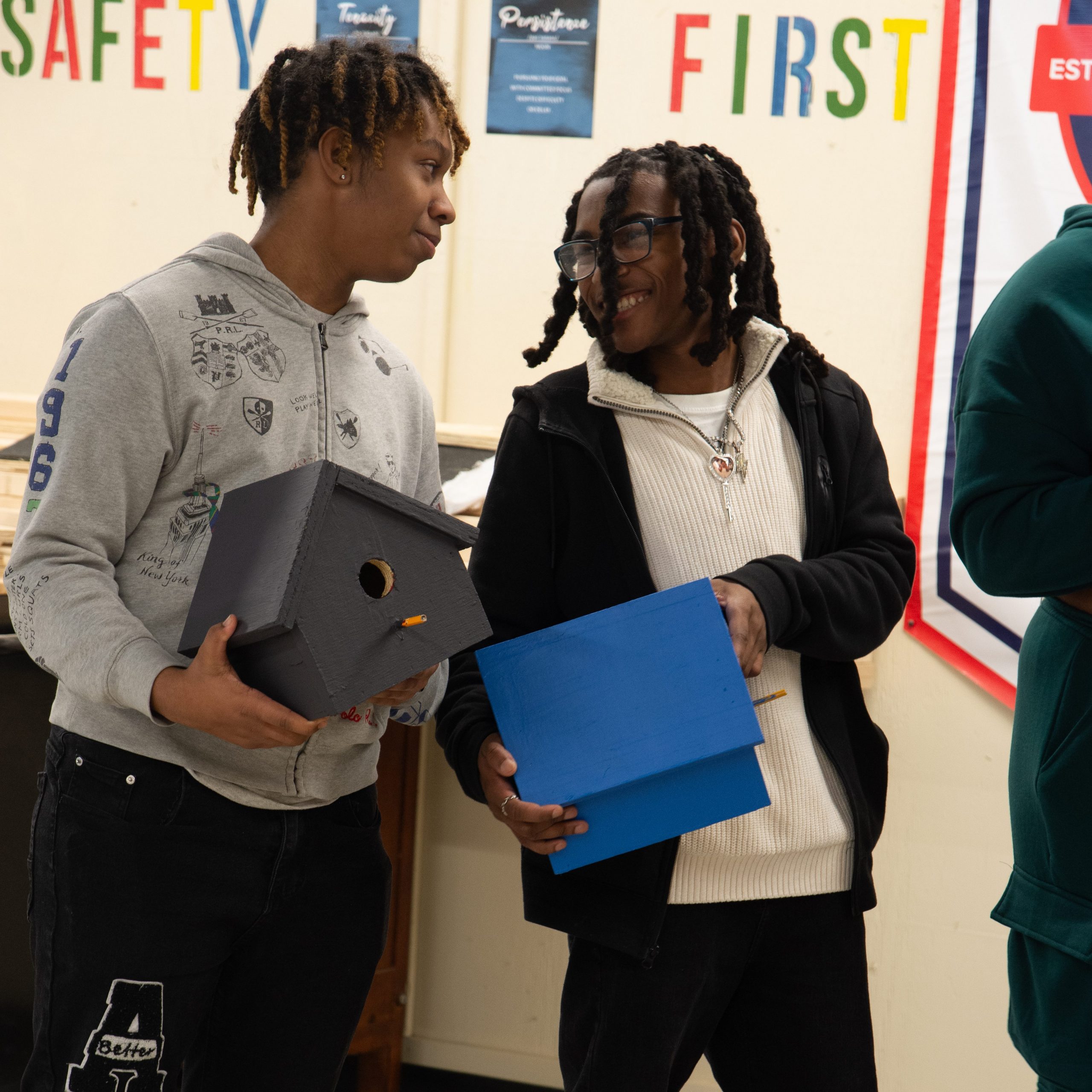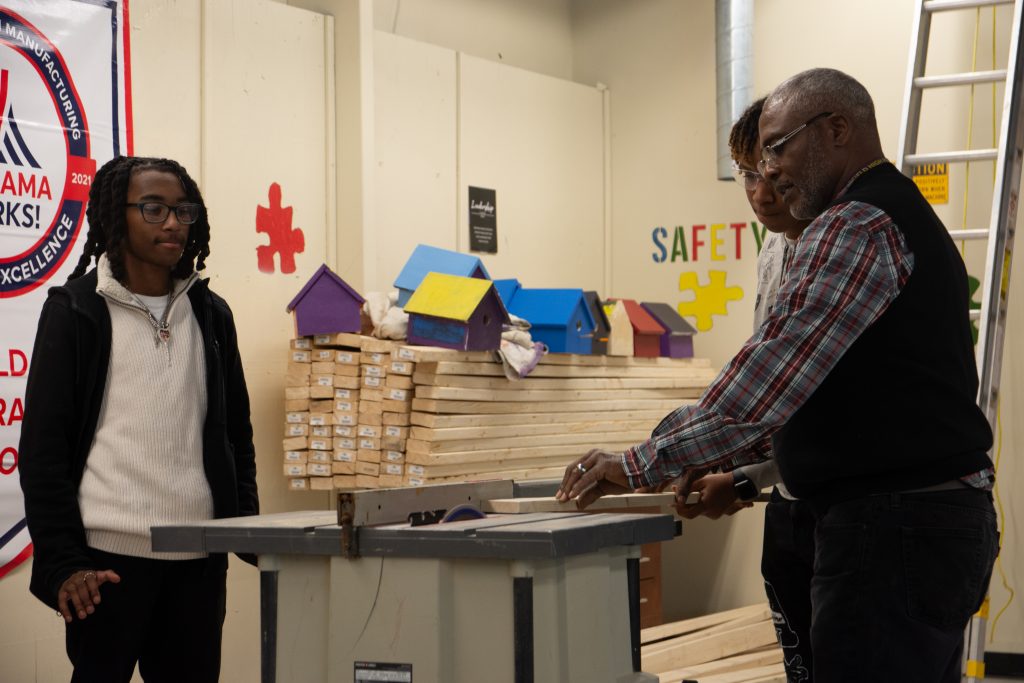
Mckensie Fenil is a shining example of the sort of young people who Fairfield loves to foster.
A junior at Fairfield High Preparatory School, Mckensie is a dedicated student and also deeply engaged with her school community. She is especially involved with InFocus, a mental health and peer-mentoring group at Fairfield High.
Since first being introduced to the group in 2022, Mckensie said she has learned a lot about her classmates and the challenges they face. She said it’s clear that problems outside of school affect work and life at school itself. Providing resources to deal with various issues can mitigate those problems, she said.
“Outside factors affect academic growth and performance,” said Mckensie, “so I think that being able to get those resources gives those students a fighting chance to be able to excel and go to college and pursue a career.”
Just recently, United Way of Central Alabama (UWCA) initiated a new strategy in its continued partnership with Fairfield City Schools (FCS) to maximize the services and solutions available through schools in the city.
The Fairfield Community Schools Strategy, launched at the beginning of the 2023-24 school year by the United Way Bold Goals Coalition, seeks to use school properties as physical hubs for a range of services – besides education alone — to ultimately address the needs of all community members, whether they are students or not.

The first step in implementing such a strategy is to identify what is needed by residents of Fairfield and to focus everyone on the same goal. Dr. Regina Thompson, FCS Superintendent, said more than 90 partners, including local businesses, residents and nonprofits, have been hard at work on that.
“Originally, everyone was working on different needs,” Thompson said. “We had 90-plus partners, but at the same time, they were only bringing to the table what they could do, and then they would go back to their respective businesses. But at this time, we were like, ‘Okay, if we’re really going to talk about Community Schools, everyone needs to work on the same goals.’”
While still in the early stages, numerous organizations have already agreed to begin a variety of additional services in Fairfield because of this collaborative effort.
This year, for example, marked the beginning of the Modern Manufacturing Program, sponsored by Central Six Alabama Works! The program offers high school students up to eight credentials. In another development, Big Brothers Big Sisters of Greater Birmingham recently started its Beyond School Walls mentorship program in Fairfield, pairing students with Southern Power employees and arranging immersive visits to their workplace.

Additionally, Fairfield has strengthened its connection with the Nurse-Family Partnership of Central Alabama, administered by the UAB School of Nursing, enabling pregnant students to access extra care in the months before and after giving birth.
In addition to initiating the collaborative effort, United Way has two coordinators on the ground in Fairfield every week. They are connecting organizations to Fairfield to provide for the needs identified by community members.
Darnell Gardner, a lifelong resident of Fairfield, who previously served on the City Council, said he’s never seen anything like the Community Schools Strategy attempted in the city. Bringing the coordinators into the city, he said, gives Fairfield new connections and a fresh set of eyes to provide for community members.
“There are times when people outside the norm that you experience each and every day can come in and see something that might be helpful to benefit you and make some changes in the way you operate,” Gardner said.
Fairfield Mayor Eddie Penny said schools are one of the few avenues through which a “whole family” can be reached and that the economic situations of families within communities directly impacts the success of children.
“If you don’t have to worry about the financial portions of life, if you’re a student,” Penny said, “and you’re not worried about a place to stay, you’re not worried about being warm or cold, you’re not worrying really about food, all you’ve got to do really is concentrate on your studies.”
Emily Herring, who has been the mental health services coordinator for FCS since 2020, said the need for mental health resources in Fairfield is great, and there are many options for those services in the Birmingham area.
“If we can make it easy for them to be able to partner with Fairfield, then that’s what makes the difference,” Herring said. “As we bring in more resources, there are amazing opportunities in our community to really meet the needs that exist here.”
Ensuring that community members are heard is critical to the success of the Community Schools Strategy, Herring said.
“To be able to bring the community together to address the needs and to make a difference in the community, that’s the most important part,” Herring said. “We want to make sure that we’re not just addressing one thing but really bringing everyone together to partner together in this.”